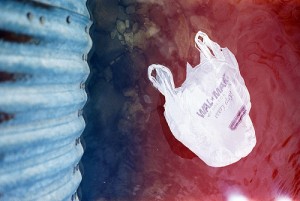 Plastic bags, the bane of human existence.
Plastic bags, the bane of human existence.
They were also a huge annoyance to Daniel Burd, who said that they’d come pouring out of the closet every time he did chores.
One day, I got tired of it and I wanted to know what other people are doing with these plastic bags.
So he did what any teen would do. He experimented with bacteria and decomposed a plastic bag in 3 months, winning top prize in the Canada-Wide Science Fair in Ottawa.
[social_buttons]
He ground the plastic bags into powers and mixed them with a concentration of household chemicals and yeast. They indeed became plastic-eating microbes, and he used more of the solution over the course of 6 weeks. He compared them with controls (plastic powder in dead bacteria), and they weighed 17 percent less.
That wasn’t good enough for Burd. He tested different bacteria samples against one another and went with the more effective one (Sphingomonas bacteria). He also had a helper strain (Pseudomonas), which apparently assisted the first with reproducing.
From TheRecord.com:
At 37 degrees and optimal bacterial concentration, with a bit of sodium acetate thrown in, Burd achieved 43 per cent degradation within six weeks.
He also tried it on a larger scale, with 5-6 whole bags, and the results were the same. He thinks that given a bit more time, he could have completely dissolved the bags.
So how cool is that? Plastic bags are a huge problem, but we may be able to do this on a large scale, thinks Burd.
All you need is a fermenter . . . your growth medium, your microbes and your plastic bags.
Amazing! For now, let’s all stick with our reusable cloth bags.
To read his science report, click here.
Source: TheRecord.com with a tip-off on the story from Wired.com
Image: reegmo on Flickr under a Creative Commons License.
This is awsome! I have been looking for a research project and I think I have found it. This is something that now in days people are more and more concern about. It great to hear that someone may have found a solution to this problem.